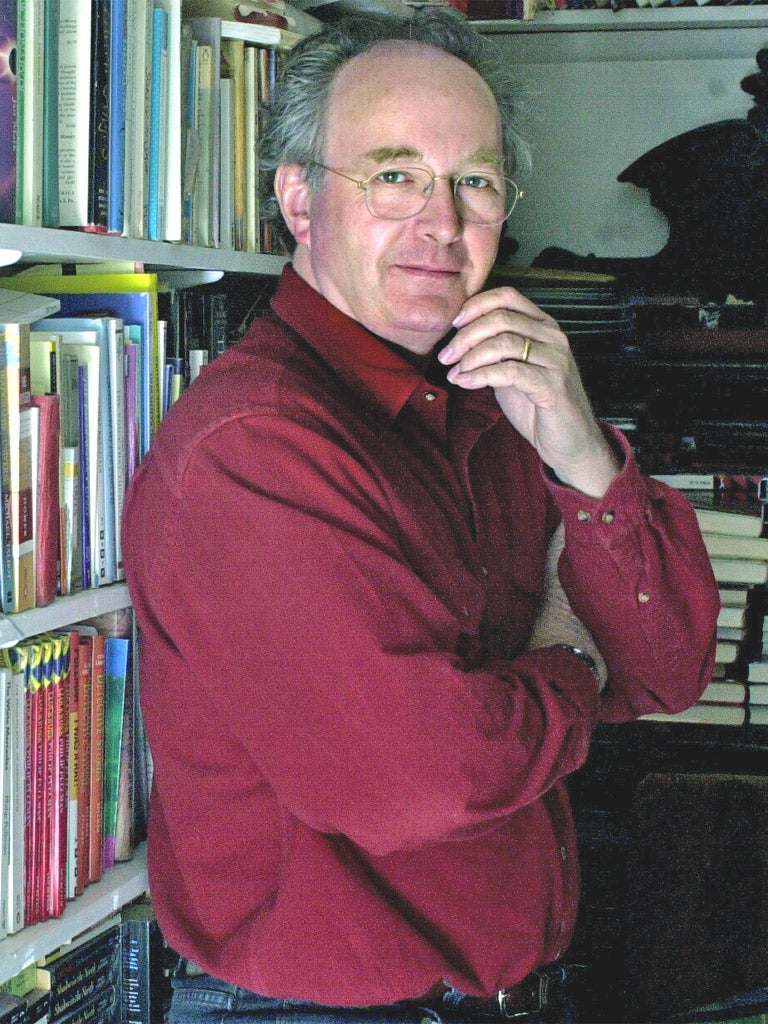Pullman offers school textbook authors a vital lesson: rebellion for beginners
Novelist denounces Government's plan to cut copyright payments to authors of school books

The novelist Philip Pullman is among thousands of writers condemning government proposals to restrict the fees they receive from their books used by schools, colleges or universities.
The author, pictured, of the fantasy trilogy His Dark Materials said that the originators of educational material should be paid fairly: "Anything else is simply theft by another name."
Writers including Julia Donaldson and Anne Fine – the current and former Children's Laureate respectively – warn that proposed amendments to the framework for licensing copyright across the education sector will devastate their income.
Although many of the writers are not well-known names, their textbooks are required reading for students, and they rely on the royalties for as much as half their earnings. Under the present system, educational establishments are permitted to copy hundreds of thousands of published texts for annual fees – equating to about £2.75 per student – through the licensing schemes operated by the Copyright Licensing and Educational Recording Agencies. The Authors' Licensing & Collecting Society (ALCS) distributes the royalties. Last year, around 18,500 writers shared more than £7m of such income.
For many writers, these fees exceed direct sales of their books because schools, colleges and teachers buy one copy of a book and photocopy text.
Authors are outraged that the Government wants to increase the amount of their work that schools can copy without paying for the time spent on researching and writing.
The proposals, which are out for consultation, propose widening of "copyright exception for education to the extent permitted by EU law". They follow the publication last year of the Hargreaves review into the intellectual property framework.
Ian Graham, author of 250 science textbooks, said: "I don't understand why inventors, musicians and software writers can protect their ideas and work but the value of an educational writer is now so low that we [cannot] protect our ... creative work. Or is the Government planning to tell Microsoft that schools can pirate as many copies of Microsoft Office as they like?"
The Department for Business, Innovation and Skills said: "Under the proposals in the consultation, schools will still need to buy books and other learning materials, and will still need licences for the majority of the copyrighted material they use."
Brought to book: Authors speak out
Richard Gross, author of 'Psychology: The Science of Mind and Behaviour'
"The hours worked in relation to income meant I was earning below the minimum wage. Taking out ALCS royalties would be disastrous."
Keith Brindle: author of 51 English textbooks for students aged 11-16
"For some works, the income from photocopying has exceeded that from direct sales ... If the changes are implemented, I will almost certainly stop writing books for education."
John Seely, author of 'Oxford Secondary English' and other titles
"Educational writing has never been an easy way to make a living ... Schoolbooks have a limited lifetime."
Join our commenting forum
Join thought-provoking conversations, follow other Independent readers and see their replies
Comments
Bookmark popover
Removed from bookmarks